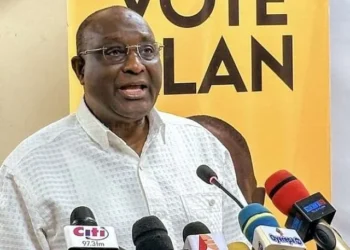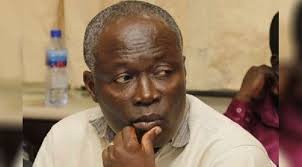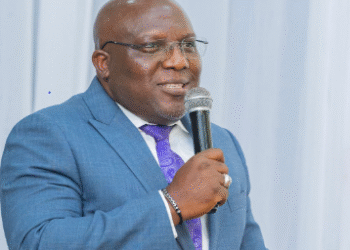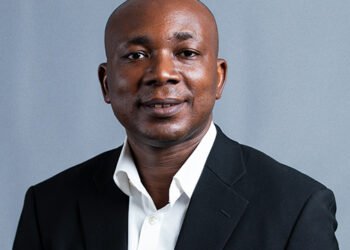The issue of foreign deportees in Ghana has sparked intense public debate following the government’s recent decision to accept West African nationals deported from the United States.
Political activist and lawyer Oliver Barker-Vormawor has weighed in on the controversy, painting a vivid and painful picture of a country he describes as deeply conflicted about migration and identity.
According to Barker-Vormawor, Ghana is a nation struggling with its own contradictions. On one hand, it is a country filled with young people eager to leave, while on the other, it is quick to condemn those whose attempts to build a better life abroad end in failure.
“Ghana is a country of deep contradictions. Ninety-eight out of every 100 young people you meet want to jakpa. The remaining two? They didn’t hear the question well.”
Oliver Barker-Vormawor
Barker-Vormawor further highlighted that Ghana’s economy and social welfare are significantly supported by remittances from citizens living abroad.
He explained that most families depend on financial assistance from relatives overseas to survive, while those without such support often feel resentment or express frustration toward family members who were unable to migrate or provide help.
From bustling cities like Hamburg to smaller towns such as Worcester, Ghanaian migrants work tirelessly to provide for their loved ones back home.

Their remittances serve as a vital support system, bridging the gaps left by what Barker-Vormawor described as failed leadership and broken national systems.
He stressed that Ghana’s situation is not unique but mirrors that of many other African nations. In these countries, he said, “wicked leaders, broken systems, and stolen futures force the young to gamble their lives for a chance elsewhere.”
For countless young Africans, migration is not just a dream but a desperate necessity born out of frustration and hopelessness.
Public Scorn For Deportees
Despite this shared reality, Oliver Barker-Vormawor expressed deep disappointment over the way deported migrants are treated upon their return.
He argued that instead of compassion, many Ghanaians react with mockery and judgment.
“You would think this shared reality would create compassion. That when a migrant is deported, our hearts would break, because we know it could just as easily have been us, or our brothers, or our cousins.”
Oliver Barker-Vormawor

He noted a disturbing trend where, instead of showing compassion, many people mock and ridicule deportees.
According to him, this reaction reflects a lack of empathy, as those being ridiculed are often individuals who simply sought a better life under difficult circumstances.
Barker-Vormawor stressed that deported migrants are frequently subjected to harsh insults and are unfairly treated as though they were criminals or had willingly chosen their suffering, rather than being victims of systemic challenges and limited opportunities.
“But all they wanted was a chance. A chance denied them not by laziness, but by the injustice of being born into the wrong passport, the wrong continent, under the wrong leaders.”
Oliver Barker-Vormawor
A Call For National Self-Reflection
Barker-Vormawor’s remarks go beyond the plight of deportees to highlight a deeper cultural issue: the lack of empathy among Ghanaians for one another.
He posed challenging questions to the public, urging reflection on why society turns against its most vulnerable.
“So I ask: nti why paa do the poor hate themselves? Why do we spit on those who carry the same wounds we bleed from? Why do we despise in others what we secretly fear in ourselves?”
Oliver Barker-Vormawor
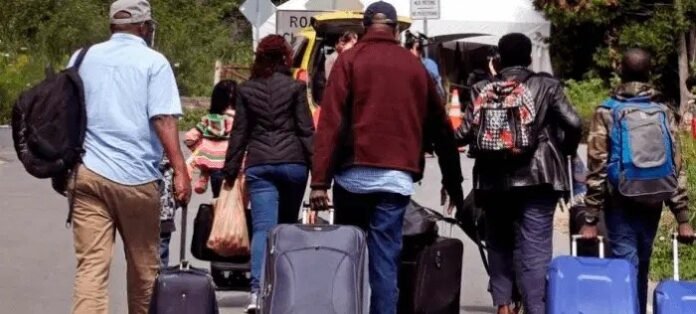
For Barker-Vormawor, these questions are at the heart of Ghana’s social and political struggles.
He warned that until the nation addresses its collective lack of empathy, it will continue to perpetuate cycles of suffering and division and “remain a country where empathy is deported long before people are.”
The activist’s comments come at a time when migration has become a central political issue, not only for Ghana but for the entire West African region.
With many young people desperate to leave, and governments facing pressure to manage deportations from wealthier nations, the debate touches on both domestic and international policies.
Barker-Vormawor’s critique challenges both the government and the public to rethink their attitudes toward migration.
For him, the treatment of deportees is not merely about individuals returning home; it is a reflection of Ghana’s national character and its ability to care for its own citizens, both at home and abroad.
As the conversation around deportees continues, his words serve as a stark reminder that migration is not just a policy issue, but a deeply human story of dreams, struggles, and shared responsibility.
READ ALSO: Ghana Bourse Records GHS 20.7m in Trades—Strongest Daily Performance in Weeks




